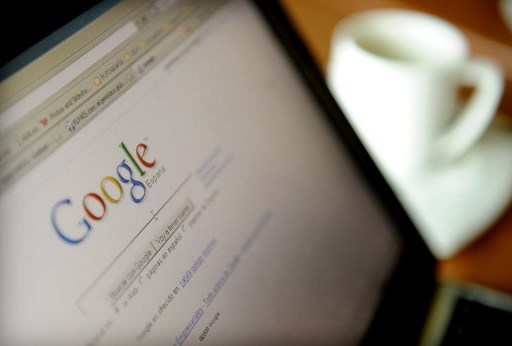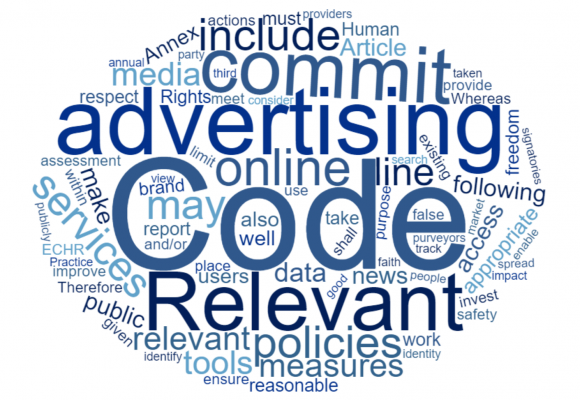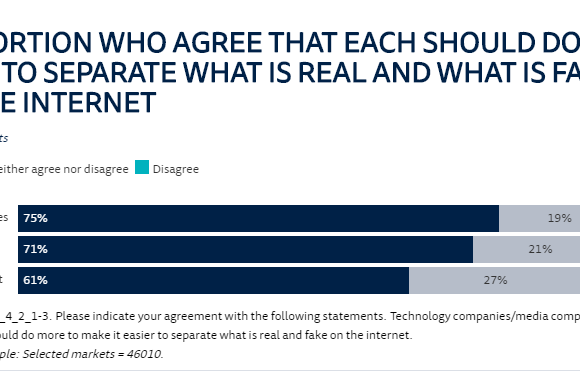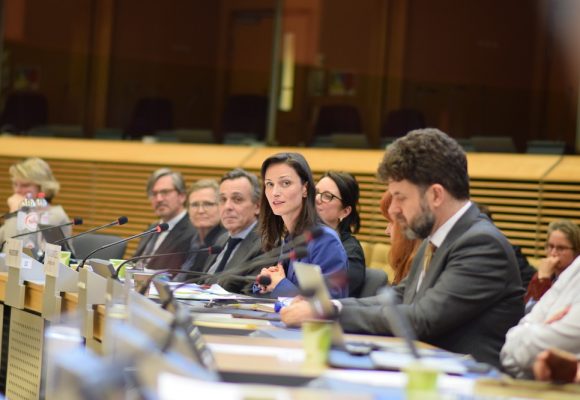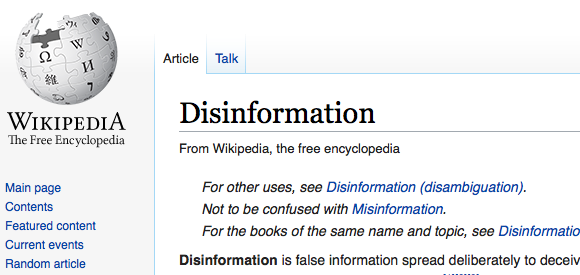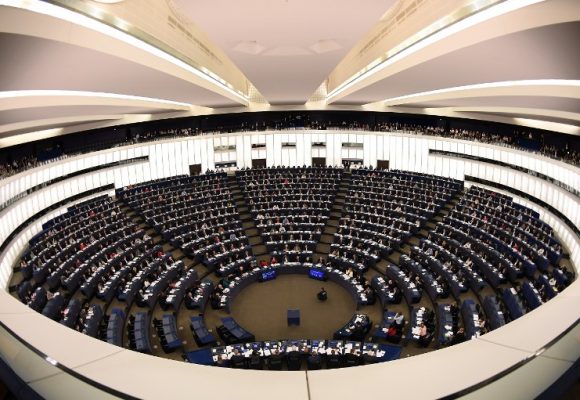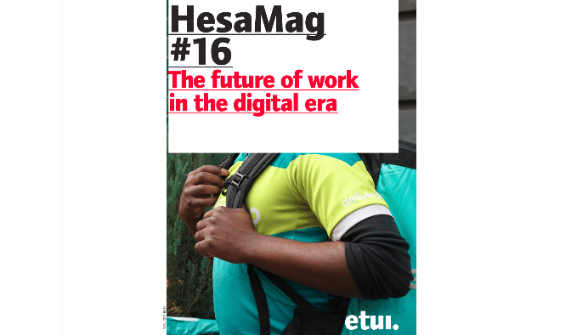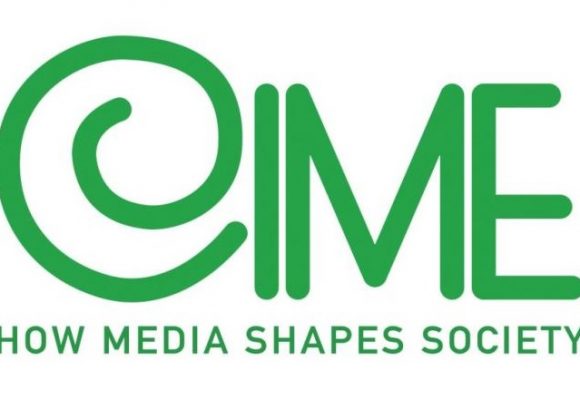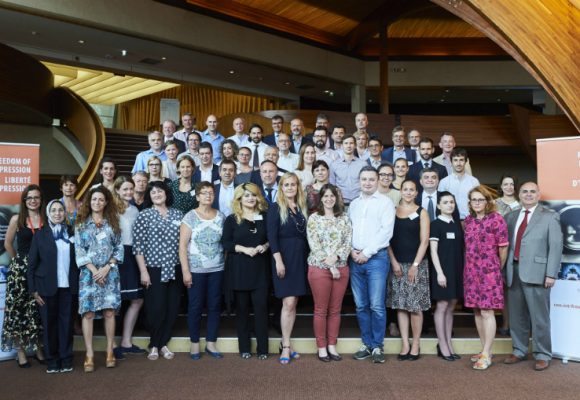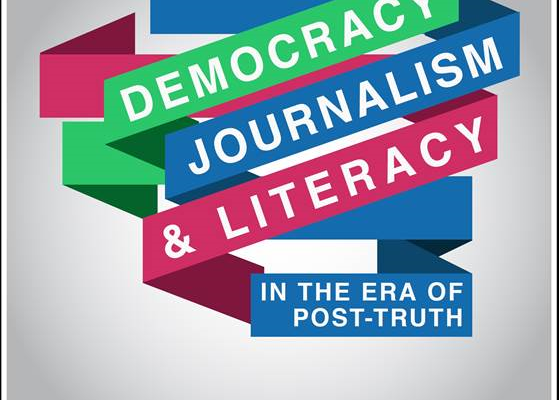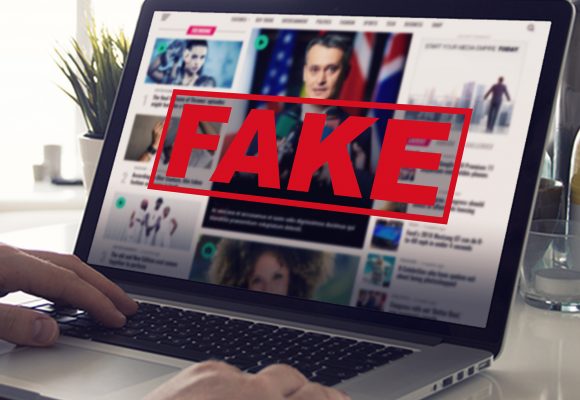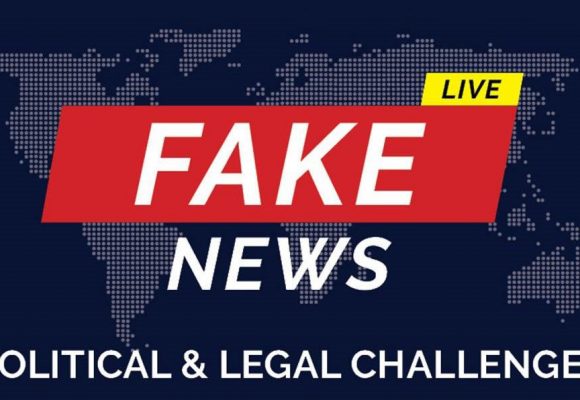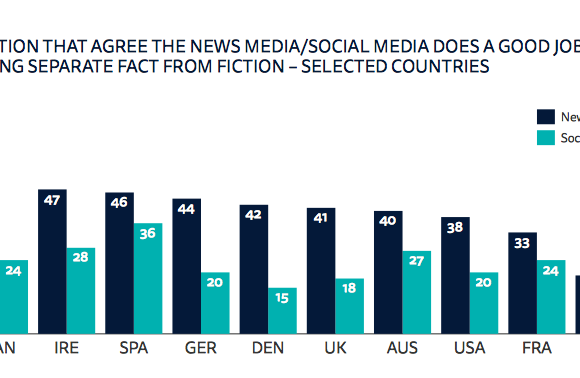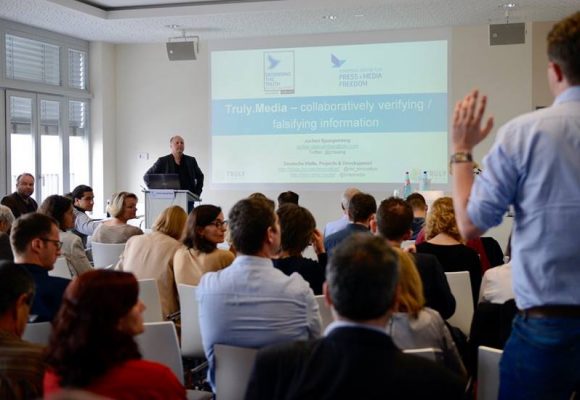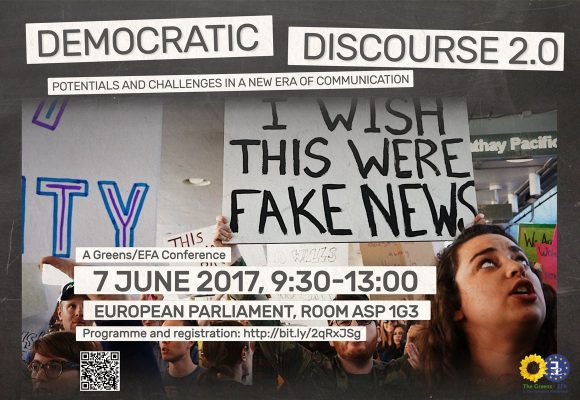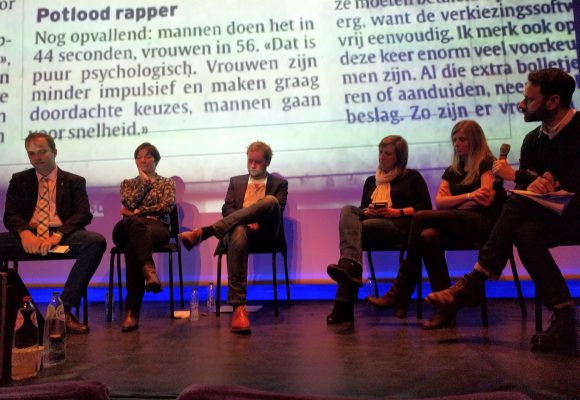#fake news
New report sets guidelines for EU effort to tackle disinformation
Access Now, Civil Liberties Union for Europe (Liberties) and European Digital Rights (EDRi) just issued a joint report evaluating the work done by the EU institutions to tackle online disinformation. They found out a lack of evidence-based solution to address the problem and therefore established a series of recommendations to be followed prior and after the adoption of the forthcoming EU Action Plan on the topic. The European Federation of Journalists (EFJ) supports these organisations in asking the EU and Member States to refrain from undue interference and censorship while addressing the issue of disinformation. “We urge the European Commission…
EFJ rejects the Platforms’ so-called “Code of Practice” on disinformation
Members of the Sounding Board of the EU Multistakeholder Forum [1] on Disinformation Online – which includes the EFJ – have delivered their final opinion on the new so-called ‘Code of Practice’ drafted by the online platforms (Google, Facebook, Twitter, Mozilla and several advertisement organisations). The Sounding Board, comprised of representatives of the media, civil society, journalists, consumer organizations, fact-checkers and academia, thanked the Commission and Commissioner Mariya Gabriel for convening the Forum and for the opportunity to comment on the so-called ‘Code of Practice’ drawn up by the online platforms. As demonstrated in the Sounding Board’s detailed and written…
Publishers and tech companies should take responsibility for fixing misinformation, says 2018 Digital News Report
Concerns on the quality and reliability of news has grown globally during the year 2017-2018, and consumers are expecting the media companies and technology companies to take action against the misinformation, while the opinions are much more mixed when it comes to government intervention in these cases. The 2018 Digital News Report, published on 14 June by the Reuters Institute for the study of journalism, reveals more interesting patterns and changes in the behaviour of news consumption globally. Growing concerns on misinformation The research shows that 54% of respondents globally are concerned about what is real or fake on internet.…
The best antidote to disinformation is a sustainable media ecosystem
Together with 38 experts, the European Federation of Journalists (EFJ) participated in a EU High-level Expert Group (HLEG) set up by the European Commission, since January 2018, in order to tackle the phenomenon of so-called “fake news” and disinformation. The final report of this group has been published today in Brussels by the EU Commissioner for Digital Economy and Society, Mariya Gabriel. The EFJ welcomes the final report despite some doubts on some specific proposals. The report clearly indicates that the real threat is disinformation, not “fake news”. Disinformation is defined as “false, inaccurate, or misleading information designed, presented and promoted to intentionally…
In France and Italy, the so-called “fake news” have a limited reach, new study reveals
The Reuters Institute just published the first evidence-based study “Measuring the reach of ‘fake news’ and online disinformation in Europe” focusing on the most popular false news sites in France and Italy. The results show that the so-called “fake news” have a limited reach and that the time spent on false news websites is far lower than the time spent on news websites. It is often assumed that false news have a huge impact on the people who read them. Yet the research reveals that most of the false news websites analysed had a reach of less than 1% of…
European Parliament debates the influence of Russian propaganda on EU countries
The European Parliament debated on 17 January 2018 the burning issue of the so-called “fake news” and Russian propaganda on EU countries. The debate focused on fake news stories coming from unidentified people and bots, as well as well as politically-driven news from outlets such as state-owned Russia Today and Sputnik. The next European elections to take place in 2019 are likely to be the next big target for Russian propaganda, MEPs have warned. During this plenary session in Strasbourg, Members of the European Parliament (MEPs) highlighted issues including the funding and staffing of actions against misinformation and the resilience of democracies…
HesaMag #16: working conditions and fake news in the digital era
After an issue on the precarious working conditions of journalists, HesaMag, a magazine produced by the European Trade Union Institute (ETUI) about health and safety at work, just released its 16th edition entitled “The future of work in the digital era“. The magazine’s special report investigates the impact of technologies on working conditions and environments in the industry sector, as well as in the intellectual professions. A story on the fake news industry in Macedonia shows how young people, with no prospects of finding a decently paid job, manage to earn a few hundred euros by working around the clock. Working conditions…
Global survey on media ethics highlights fake news, low pay and spin
The Centre for International Media Ethics (CIME) has published the results of its survey on ‘Media Ethics in the Post-Truth Era’. The survey, with responses from Africa, the Americas, Central and South Asia, Europe and Oceania, aimed to learn from media professionals about the state of media ethics in their countries. According to participants, the top issues faced at work for journalists around the world were fake news, low pay, the pressure to attract the largest audience and political or corporate spin. Despite these issues, over half of respondents said that their government’s responses to protecting media ethics rate between…
“Information Disorders”: Council of Europe committee discusses recommendations to tackle fake news
At the meeting of the Council of Europe Steering Committee on Media and Information Society (CDMSI), from 5 to 8 December 2017, participants discussed a series of documents and recommendations currently relevant for journalists and media workers. A study by Claire Wardle and Hossein Derakhshan, commissioned by the Council of Europe, highlighted the various aspects of what the authors call “Information Disorders” (not “fake news”). These information disorders come in three forms: misinformation, disinformation and malinformation. Information disorders can be organised or unorganised, and are emotional, visual and repetitive. To counter information disorders, the authors recommend action by content providers…
Democracy, journalism and literacy discussed at the European Parliament
“Democracy, journalism and literacy in the era of post-truth” was the topic of a discussion at the European Parliament on 5 December 2017, held by the Centre for Media Pluralism and Media Freedom (CMPF), Media Literacy for Citizenship (EAVI), and Italian MEPs Barbara Spinelli and Curzio Maltese. Barbara Spinelli, the rapporteur of an own-initiative report on media freedom, referred in her analysis to the unprecedented level of self-censorship among journalists referring to the Council of Europe study”Journalist under pressure” . He report will among other deal with this, the urgent need for whistleblowers’ protection and how to tackle the effects…
#TackleFakenews: European Commission convenes expert meeting
Brussels, 13-14 November 2017. Yannis Kotsifos, member of the European Federation of Journalists (EFJ) Steering Committee and Renate Schroeder, EFJ director participated in the European Commission’s Directorate-General for a communications networks, content and technology multi-stakeholder conference on fake news. The European Commission engages on a broad-based consultation about how to deal with disinformation online. The objective is to help the Commission in close cooperation with consultation partners, define the scope of the fake news issue and reach consensus on how to proceed. There is no common understanding on what fake news is. Guy Berger, director of the Freedom of Expression…
European parliament discusses the political and legal challenges for fake news
Fake news have become an unavoidable term when talking about (digital) media. They are seen as an effective tool of manipulating political discourse, a way for content creators to generate revenue from advertising and are easily widespread on the social media. The parliamentary group of social democrats in the European Parliament organised on Wednesday (06/09/2017) a conference to tackle the political and legal challenges linked to fake news and invited Ricardo Gutiérrez, General Secretary of the European Federation of Journalists, as an expert to the panel. Arnaud Mercier, professor of political communication at Panthéon-Assas University in Paris, said that fake…
Social media trusted twice less than news media, shows the 2017 Digital News Report
The year 2016-2017 has seen intense debates over fake news, algorithms and distrust towards journalists and journalism. The 2017 Digital News Report, published by the Reuters Institute for the study of journalism, contains interesting findings on some of the prevailing narratives around these issues. Social media are not doing a good job in separating fact from fiction The overall trust in news – 43% all media combined – drops significantly when it comes to social media, as only 24% thinks that social media do a good job in separating fact from fiction, compared to 40% for the news media. Only…
ECPMF conference on fake news: investment in quality journalism and media literacy needed
How to fight fake news? Do facts still matter? The European Centre for Press and Media Freedom (ECPMF) took part in this burning issue with the conference “Defending the truth in a post-truth era” taking place on June 13 and 14 in Leipzig, Germany. Many case studies were showcased by different NGOs and stakeholders highlighting the need to invest in media literacy, fact-checking trainings and collaborative journalism. LieDetectors is one of the project presented by Juliane von Reppert-Bismarck, aiming to bring journalists into classrooms in order to give them an overview of what a fake news is and to help children…
European Parliament discusses democracy and challenges in journalism
The future role of media is under question – new online media companies are emerging, print advertising is in decline and there is more and more talk about ‘fake-news’, which contributes to losing readers’ trust. The Greens in the European Parliament organised on Wednesday (07/06/2017) a Democratic Discourse with experts discussing the new trends in the digital news landscape and how journalists and media outlets are living up to them. “The majority of professional journalism is still funded by newspapers – 69 % of the funds for professional journalism came from newspaper companies in the UK in 2012,” pointed out…
Finding the answer to fake news in ‘post-truth’ climate
“A lie can travel halfway around the world while the truth is putting on its shoes,” says the quote by Mark Twain which speakers used as a starting point at the debate on journalism in ‘post-truth’ climate at Difference Day. The event was hosted by the Centre for Fine Art (BOZAR) in Brussels on the occasion of World Press Freedom Day (WPFD), which is celebrated May 3rd every year. One of the five panels on journalism and press freedom talked about the spread of misinformation, which is widely scattered through different platforms and an alarming phenomenon. Experts on the panel emphasized the…

